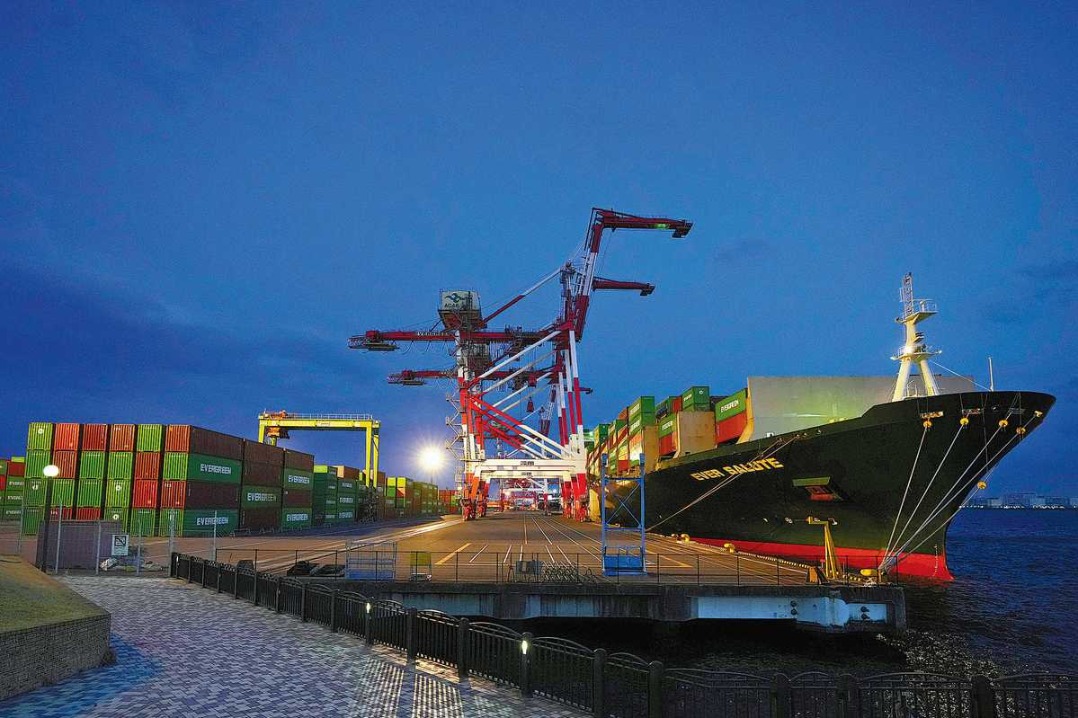US expansionism poses threat to world order
Washington's foreign policy shift risks triggering wave of land grabs: Experts


The US administration's revival of territorial ambitions — a central feature of its foreign policy agenda — poses a significant threat to the post-World War II rules-based international order. Experts warn that such US expansionism risks triggering a wave of international land grabs.
On April 9, Panama reaffirmed that the United States recognizes its sovereignty over the Panama Canal, despite the increasingly aggressive rhetoric from Washington. The announcement came as the two countries signed agreements to expand US military training in the Central American country.
Earlier this year, US President Donald Trump floated proposals to seize Greenland and the Panama Canal — by military force if necessary — as part of a broader effort to bolster US national security. He also suggested transforming Gaza into the "Riviera of the Middle East" and floated the idea of annexing Canada as the 51st US state. One of his earliest executive orders even renamed the Gulf of Mexico the "Gulf of America".
Experts say these proposals reflect a deeper shift in the new US administration's foreign policy toward assertive nationalism and unilateralism.
In response to Trump's renewed calls to acquire Greenland, the territory's newly sworn-in Prime Minister Jens-Frederik Nielsen declared, "The United States won't get that", adding, "We determine our own future."
A January poll by Danish newspaper Berlingske, conducted by pollster Verian, revealed that 85 percent of Greenlanders oppose becoming part of the US, with only 6 percent in favor and 9 percent undecided.
Russian President Vladimir Putin, speaking at an Arctic policy forum in Murmansk last month, said the US administration's interest in Greenland was unsurprising given the US' long-standing strategic interest in the mineral-rich region. He noted that the US first explored acquiring Greenland in the 19th century and later offered to purchase it from Denmark following World War II.
"It's obvious that the United States will continue to systematically advance its geostrategic, military-political and economic interests in the Arctic," Putin said. He emphasized that the Arctic's growing significance — driven by climate change and evolving global trade routes — has intensified geopolitical competition in the region.
Analysts have compared the US administration's territorial ambitions and economic policies to the late 19th-century expansionism under president William McKinley, who oversaw the acquisition of Cuba, the Philippines, Puerto Rico, and Hawaii.
Ilan Kapoor, a professor of critical development studies at York University in Canada, wrote in a blog post that seizing land, waterways and mineral wealth is central to the current US administration's vision of ushering in a new "Golden Age" of corporate capitalism.
"The combination of US global power, nationalist populism and the Trump administration's corporate-driven, predatory approach makes for a dangerous dynamic," Kapoor warned.
Trump's "America First" agenda, he said, aims to reposition the United States as the dominant global power by leveraging economic and military strength to secure favorable trade deals and strategic assets.
Jian Junbo, director of the Center for China-Europe Relations at Fudan University in Shanghai, noted that Greenland's vast mineral reserves — particularly rare earth elements, cobalt, copper and nickel — are critical to both the US military-industrial complex and the emerging green economy.
Powerful foothold
"These resources could significantly enhance the self-reliance and global dominance of the US industrial supply chain," Jian said. "From a military standpoint, much of Greenland lies within the Arctic Circle. A stronger American military presence there would also increase deterrence against Russia. Moreover, as melting ice opens Arctic shipping lanes, control of Greenland would give the US a powerful foothold along these vital new routes."
Geopolitically, the control of Greenland by the US could limit other global powers' influence in the Arctic. Jian said the US might not be seeking full control over Greenland but could be using the idea as leverage in negotiations with the European Union.
"There is ample space for US-EU coordination and mutual benefit," Jian noted, "But the approach of coercion and intimidation to alter sovereignty runs counter to the values of Denmark, Europe and Panama, and violates the norms of international order and multilateralism. The global community must remain alert and resolute in rejecting such tactics."
Zhao Yongsheng, a research fellow at the Academy of China Open Economy Studies at the University of International Business and Economics in Beijing, said the US interest in Greenland has remained persistent throughout both of Trump's presidential terms. From a geopolitical perspective, US control over Greenland would allow for a contiguous Arctic front alongside Alaska and northern Canada.
"This would dramatically strengthen the US strategic positioning in the Arctic," Zhao said.
"Whether in artificial intelligence or green technology, rare metals are essential — and currently, China controls much of the global supply. Access to Greenland's resources could shift that balance in favor of the US."
Shi Guannan, a researcher at the Institute of American Studies under the China Institutes of Contemporary International Relations, noted that although international law makes it unlikely the US could seize Greenland by force, global warming and the rising importance of Arctic shipping routes may elevate the island's strategic value.
"With Trump's mix of pressure and incentives, Denmark may be compelled to grant Greenland greater autonomy and enhance its security," Shi said. He also predicted deeper US-Greenland military and economic cooperation, alongside intensifying competition in the Arctic among the US, Europe and Russia.
This could further strain US-Europe relations. On one hand, Denmark — a NATO member and longstanding US ally — has repeatedly faced pressure from the new administration to sell territory, prompting alarm across the European continent. Such moves threaten to weaken trans-Atlantic ties and force Europe into a more reactive posture on strategic autonomy. On the other hand, the Trump administration's aggressive tactics could embolden far-right forces within Europe, amplifying internal divisions and instability.
Gao Ruidong, chief economist at China's Everbright Securities, wrote in a blog post that the current US administration's territorial provocations are likely to increase geopolitical risk for global investors. Whether the US administration attempts to acquire land through financial deals or military threats, the implications are deeply destabilizing.
"Since World War II, the borders of major sovereign nations have remained largely stable. No great power has so openly expressed an intent to occupy the territory of another," Gao said.
caihong@chinadaily.com.cn

































